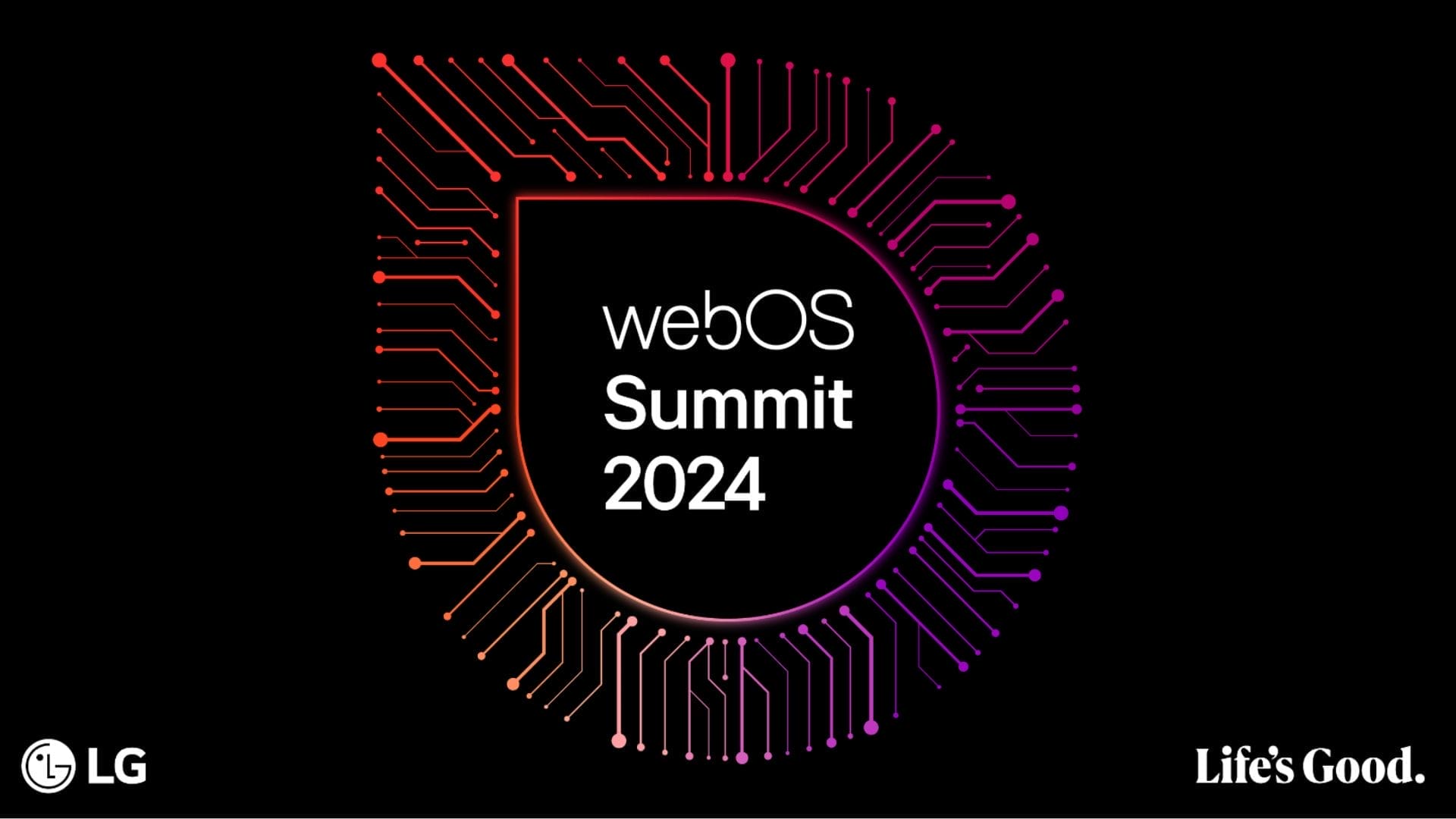LG outlines vision for AI webOS expansion at webOS Summit 2024
LG outlines plans for expanding its AI webOS platform at the webOS Summit 2024, focusing on gaming, content services, and user personalisation.

LG Electronics is pushing ahead with its ambitious plans for the future of AI webOS, with the goal of expanding the platform’s ecosystem and strengthening its role as a leading media and entertainment provider. At the webOS Summit 2024, held last week in Incheon, South Korea, the company revealed its strategic direction and upcoming initiatives, marking the tenth anniversary of the launch of webOS on LG smart TVs.
Table Of Content
Themed “Empowering webOS with AI,” the event welcomed 300 attendees from 140 partner companies across 24 countries, including content developers, producers, and providers. This highlights LG’s commitment to advancing its AI webOS platform. LG is planning to invest more than KRW 1 trillion (approximately US$740 million) to further develop webOS and related services as part of its shift from a consumer electronics company to a Smart Life Solution provider.
Expanding content and gaming capabilities
LG’s vision for AI webOS involves the continuous enhancement of its content and services. The platform, which currently operates in over 180 countries, offers more than 4,000 apps covering a broad range of interests, such as entertainment, home fitness, education, and gaming.
This year, LG is focusing on expanding AI webOS’s reputation as a leading gaming platform. The platform now offers around 4,500 games through popular cloud gaming services like GeForce NOW and Amazon Luna. To improve the gaming experience, LG has partnered with MediaTek and Razer to introduce Bluetooth Ultra-Low Latency (BT ULL) technology, which reduces input lag to just 1 millisecond when using a Bluetooth gaming controller. This new feature, showcased at the summit, promises to make gaming more responsive and immersive.
To support this expansion, LG is actively working to grow its gaming content. The company has hosted global hackathons and is collaborating with universities, including Sungkyunkwan University and New York University, to discover new games and AI-powered content suitable for the platform.
Improving user experience and business growth
LG is committed to improving the overall experience for AI webOS users. Recently, the company launched webOS Pay, a new payment service designed to simplify the process of purchasing content and services directly through the platform. This is part of LG’s wider goal of providing a seamless and personalised shopping experience.
In the last ten years, LG has sold over 220 million smart TVs and expanded its webOS platform through licensing agreements with more than 400 brands globally. Since making webOS available to other TV manufacturers in 2021, the platform has grown across various industries, including automotive infotainment systems, digital signage, smart monitors, and gaming projectors. This reflects LG’s strategy to extend its platform beyond traditional TV markets.
The company is also focusing on the advertising side of its webOS business. LG expects revenue from advertising and services on webOS to surpass KRW 1 trillion in 2024, marking a fourfold increase compared to 2021. A major contributor to this growth is LG Channels, a free, ad-supported streaming service available in 29 countries. The service currently offers more than 3,800 channels, and LG has recently launched LG Channels Showcase and LG 1, which provide premium entertainment options.
To further enhance the user experience, LG has introduced AI-based advertising solutions, which provide content recommendations tailored to individual preferences. This aligns with the company’s “Affectionate Intelligence” approach, where AI is designed to be empathetic and attentive to users’ needs.
Looking forward: Innovation for customers
LG’s vision for AI webOS is to deliver more personalised and convenient experiences. One of the key features is AI Concierge, which uses voice recognition and user data to offer customised app and content recommendations. AI webOS can even recognise individual users’ voices, automatically directing them to their personalised Home Screen without needing to select their profile manually.
At the webOS Summit 2024, attendees had the chance to experience these innovations first-hand through an interactive experience zone. They saw how AI technologies such as voice recognition and personalisation are improving customer experiences.
“Our webOS platform business continues to go from strength to strength based on close collaboration with our valued partners and an unrelenting focus on meeting the diverse needs of our customers,” said Park Hyoung-sei, president of LG Home Entertainment Company. “Celebrating a decade of webOS innovation, and now enriching customer’s everyday lives with AI webOS, LG is accelerating its transformation into a leading media and entertainment platform company.”
















